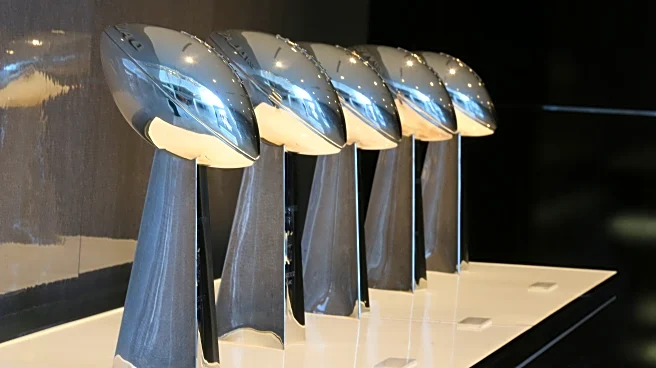What's Happening?
President Trump has introduced a comprehensive tax legislation known as the 'One Big Beautiful Bill Act,' which aims to provide substantial tax benefits to small businesses across the United States. The bill, which was passed over the summer, includes provisions that allow small businesses to deduct 100% of the cost of new equipment purchases, a significant increase from the previous 40% deduction. This applies to assets purchased on or after January 20, 2025. Additionally, the bill reinstates immediate expensing of domestic research and development (R&D) costs, which had been phased out by the 2017 Tax Cuts and Jobs Act. This change is expected to alleviate financial burdens on small businesses, particularly those in tech sectors. The legislation also revives a more generous calculation for interest deductions tied to loans, benefiting businesses that rely on debt for growth. Furthermore, the bill makes the Qualified Business Income deduction permanent, allowing eligible business owners to deduct 20% of their business income.
Why It's Important?
The tax cuts introduced by President Trump are poised to have a significant impact on small businesses, which are a vital component of the U.S. economy. By allowing full deductions on equipment purchases and R&D expenses, the bill encourages investment and innovation within small enterprises. This could lead to increased productivity and competitiveness, particularly in tech-driven industries. The enhanced interest deduction provisions provide financial relief to businesses that depend on loans, enabling them to reinvest savings into growth initiatives. The permanence of the Qualified Business Income deduction offers long-term tax planning stability for business owners. Overall, these measures are expected to stimulate economic activity on Main Street, potentially leading to job creation and economic growth.
What's Next?
As the Treasury Department and the IRS work to release regulations and guidance on the implementation of the bill, small businesses are advised to consult with tax advisors to maximize the benefits of the new provisions. Businesses should review their equipment purchase records and consider amending previous tax returns to take advantage of the R&D deductions. Additionally, companies should maintain meticulous records of tips to benefit from the 'no tax on tips' provision. The expanded employer-provided child care credit also presents an opportunity for small businesses to enhance employee benefits, potentially improving workforce retention and satisfaction.
Beyond the Headlines
The tax cuts could lead to broader economic shifts, as small businesses reinvest savings into expansion and innovation. This may result in increased demand for skilled labor and a potential rise in wages. However, the long-term fiscal implications of the tax cuts, such as their impact on the federal deficit, remain a point of discussion among policymakers. The focus on domestic R&D could also drive technological advancements, positioning the U.S. as a leader in innovation.











